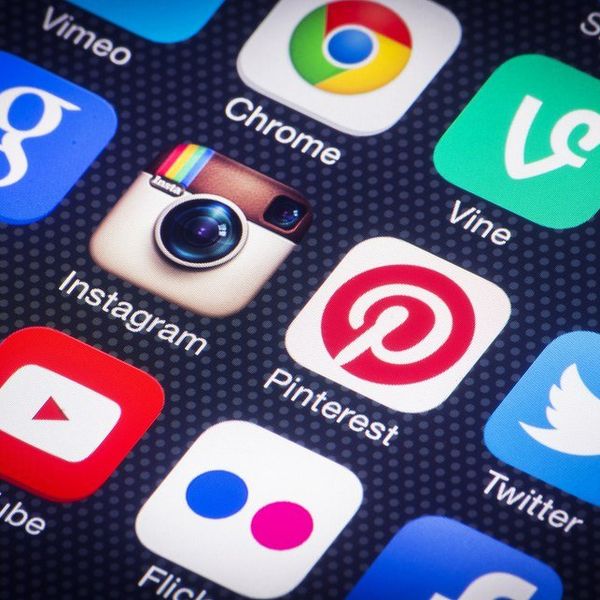Whether it is Justin Bieber uploading a daily selfie on Instagram, your brother tweeting every minute of the Lakers v. Celtics game, or your aunt posting Facebook updates on her daily routine, people feel the need to document and share everything on social media. I believe there are technological, communicational and psychological causes for this trend.
A couple years ago, friends would post something only if it was an exciting announcement to make, like getting engaged or graduating college. Nowadays, people post an opinion on anything and everything that they come across on the Internet and if there is an announcement to make, there are 40+ uploads of pictures attached to it. Unfortunately this trend is considered to have gone too far, causing some people to get fired or harm themselves over posts on social media platforms. What started this trend and made it a part of people’s daily lives?
About 40 years after Internet development, blogging became popular and the first recognizable social media site Six Degrees was created. Networking platforms such as LinkedIn and MySpace gained prominence in the early 2000s, with the creations of YouTube, Facebook, and Twitter releasing just 5 years later. Along with Tumblr, Pinterest, Vine, and FourSquare, there are over 500 social media venues that exist today. There seems to be an application for everything now, whether it is uploading a seven-second video, finding people to hire, or collaborating on a slideshow.
All of these social media websites were created to connect people from around the world, give people a platform to voice their opinions and allow people to share their ideas and dreams. Not just virtual technology, but the rise of physical technology such as the latest iPhone or Samsung tablet encourages this trend.
During dinner or a movie, people are scrolling through social media applications on their phone instead of talking to their loved one. Music acts such as She&Him and Prince have had to instruct their audience to put down technological devices during their shows, because it takes away from the performance. Rocker Jack White disappointingly said, “I’ve had the experience when I go out and perform in front of people where all I see is a sea of iPads, you can’t even see their faces.”
People forget to live in the moment and enjoy an experience because of this. The average smartphone owner spends most of their time on the phone scrolling through social media posts. Liking, commenting, sharing, snapping, tweeting and recording things has become a daily activity with the current generation. With the establishment of more and more social media networks and the rise of smartphones, people can not get enough.
This generation may be connected more than ever online through social media websites, but it is disconnected more than ever in actual face-to-face communication. People tend to find it easier to update their status than to tell it to someone in person. Granted, they are still communicating in a way, but the only genuine form of communication is speaking to someone in person. When someone has something to share, they can do it faster and more conveniently online.
Posting a lot on social media gets rid of the difficulty people may have talking about something serious or uncomfortable with someone in person. The style of communication has changed and people find it safer to post something, because a monitor is there to protect them from taking direct criticism and harsh feedback. DePaul University assistant professor Paul Booth says, “Certainly, with every new communication technology comes changes in the style and type of interpersonal communication. Obviously the bigger the influence of the technology, the more changes we see in communication styles.”
There is also a delayed response in feedback with sharing on social media. Communicating in person with someone means you have to respond right away. Communication virtually allows people to take a moment to respond or just post something and look at its reactions later. It takes some pressure off, especially for people who are introverted. It allows people to delete what they posted immediately if they regret it and do not want people to react to it.
Once something is said in person, it can not be taken back or erased. People may also differentiate their online persona to their offline identity. They are able to say what they want without dealing with present consequences, such as saying something in front of someone who is in charge like their boss. Director of the Human-Computer Interaction Lab at the University of Maryland, Jennifer Golbeck, states, “If we feel like we aren’t interacting in a real environment where there are real implications from our actions, it can lead us to drop inhibitions.”
Applications such as Whisper and Yik Yak give people anonymity, which allows for more openness and lack of thought when quickly writing something. It is easier to reveal our true emotions of guilt, anger, or sadness to the world of cyber users than to a single person, having to use eye contact and receive an awkward look back when we have said too much. Social media users find it easier to communicate behind a screen, where people can not grasp their tone or facial cues, and share something personal without dealing with a live, unexpected reaction.
Psychological studies argue that those who over share are seeking validation from others, wanting attention that they are not getting offline, and trying to find a sense of belonging. Getting noticed is hard for some people, so oversharing is a tactic they use to be seen and heard. People want to belong and that is natural, but there comes a point when informing the world on the progress of your butt rash is not helpful and way T.M.I.
Being able to be their true self is also a reason why people tend to overshare. They may find it helpful to get different perspectives from an online user who does not know the situation at hand and typically has no bias. It is like how easy it is to tell a stranger problems, because they will look at it from a completely clean slate and will give you their honest opinion. Huffington Post article says, “Experts say that oversharing is fueled by our insecurities, the need to compensate for deficits, socially or professionally that we perceive in ourselves. We worry about what others think, and try desperately to make ourselves look good, giving away far more information than we should” (Endlich).
The truth is that we care too much what other people’s perception of us is, especially in this day and age of posting certain messages and pictures on social media of how we want people to see us. It is not all negative, since approval from others can raise one’s self- esteem and confidence. For example, millennials invented the selfie and posting one can empower someone when people “double-tap” to like it. However, over-sharing can also have a narcissistic, self-absorbed side to it.
When someone like Kim Kardashian uploads seven pictures within an hour of her at an exclusive party in a designer dress and wearing a $4 million dollar ring, people can assume that she just posts for bragging rights. It is egocentric and criticized mainly for the idea that the individual thinks their posts are of utmost interest and importance to the rest of the world.
Another psychological reason behind oversharing is that many people feel lonely and simply long for affiliation. They are looking to interact with other online users repeatedly in a way that they cannot in the non-cyber worlds. Posting what they had for lunch or how their sick cat is doing can be a plea for friendship. Although oversharing is criticized for the selfish aspect of it, it can also boost people’s self confidence and the perception of themselves.
The increasing and widespread use of smartphone and new social media networks give people a platform to share maybe too many details of their personal lives. Difficulty having a real-life conversation that requires an instant response give people motivation to voice their thought through text, pictures, or a video post online.
The desire for self-fulfillment and a higher
esteem level also gives a meaningful reason to share information that helps us feel apart of a
wider community. Just be careful and think before posting something that can never truly be
gone in digital space. Some things should be kept private and people are having a hard time
recalling that. Just remember, the cute guy from work does not want to see a a video of your
child being potty-trained.





















